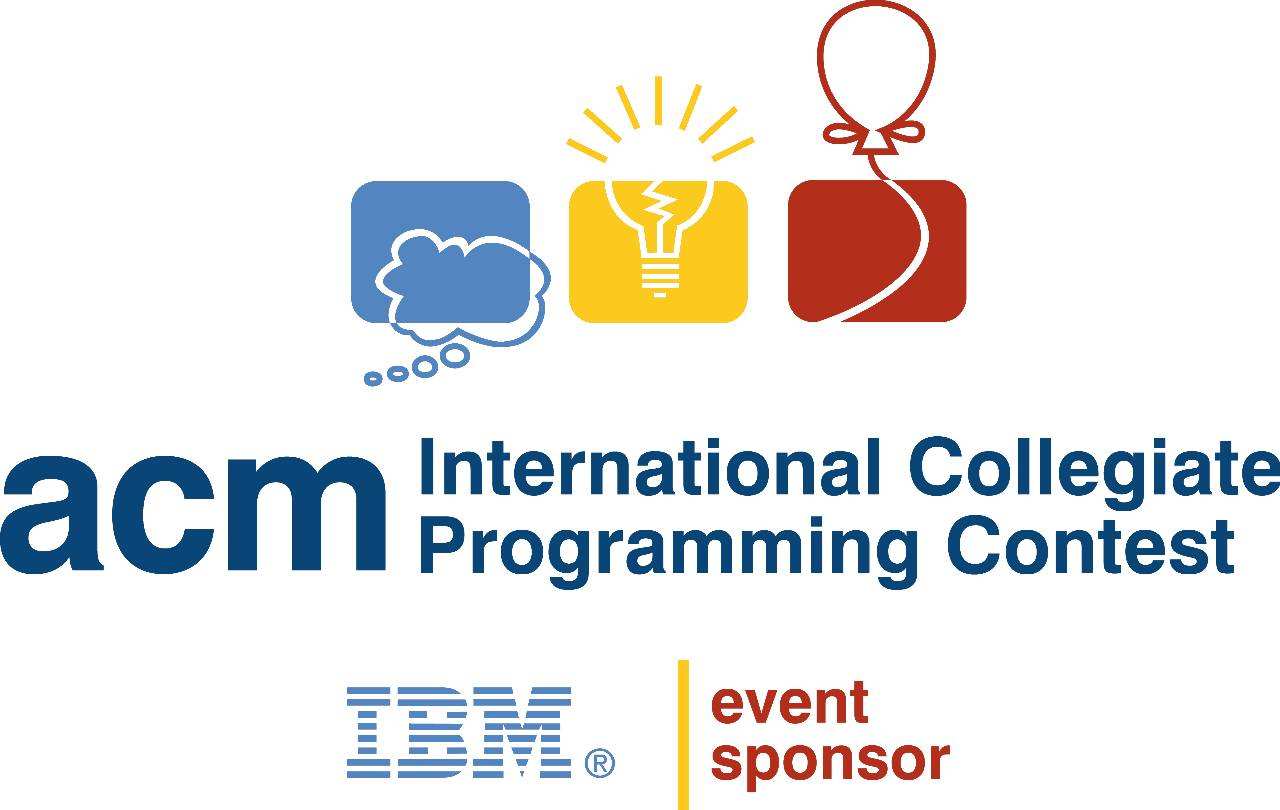You know, when folks talk about "performance," it often brings to mind grand stages and bright lights. But there's another kind of "performance" that shapes our world in powerful ways, especially in the tech space. It’s the kind of high-level execution seen in demanding fields, a bit like the precision and impact you'd expect from a top artist. We're talking about the world of ACM, not the country music awards, but the Association for Computing Machinery, and the kind of remarkable performance that happens within its sphere.
So, what does this mean for students and researchers? Well, the ACM, or International Collegiate Programming Contest (ICPC) as it's truly called, is very much a dream for many computer science students. It's a place where top talent really shows what it can do. It's about problem-solving, teamwork, and showing off some serious coding skills, actually. It's a big deal in the academic world, and it really pushes people to be their very best.
This kind of "performance" in computing is something quite special. It involves deep thought, a lot of hard work, and a drive to create something new or solve a tough problem. It's about pushing boundaries and, you know, seeing what's possible with code and algorithms. This post will explore the different facets of "performance" within the ACM, from competitive programming to academic publishing, drawing insights from real experiences and expert opinions.
Table of Contents
- Understanding ACM: Its Purpose and Prestige
- The ICPC: A Proving Ground for Talent
- Academic Performance in ACM Publishing
- Preparing for ACM: The Student Journey
- The Value of ACM Achievements
- Conference Experiences and Networking
- Frequently Asked Questions About ACM Performance
It's important to clarify something right away. While the keyword "acm miranda lambert performance" might make you think of a country music superstar on stage, our source material, "My text," focuses entirely on the Association for Computing Machinery (ACM) – a leading organization for computer science professionals and students. This means the discussion of "performance" here is about the achievements, skills, and impact within the field of computing, not musical acts. Because "My text" does not contain any biographical information about Miranda Lambert or details about her musical career, we cannot provide a biography table for her in this context, as that would mean creating new information not present in the source.
Understanding ACM: Its Purpose and Prestige
The ACM, you see, is a big name in the world of computer science. It's the Association for Computing Machinery, and it's pretty much a global society for computing professionals. It supports the field with things like publications, conferences, and educational resources. So, it's a very important group for anyone serious about computers and technology, actually.
When we talk about "performance" in the ACM context, it means how well students, researchers, and professionals do in various aspects of computing. This could be solving complex problems in competitions, or maybe writing groundbreaking research papers. It's all about showing skill and making a mark in the field, so.
The ICPC: A Proving Ground for Talent
The International Collegiate Programming Contest, or ICPC, is that, the most prestigious computer competition globally. It's what many computer science students dream about, more or less. It's where teams of students work together to solve tricky algorithmic problems under pressure. It's a true test of their programming abilities and problem-solving skills, you know.
To do well in the ICPC, a student's "performance" needs to be top-notch. This means not just knowing algorithms, but also being able to read and write English very well. As a matter of fact, the competition is entirely in English, so if you can't understand the questions or write a full English report, even if you're a great programmer with good algorithms, you might just have a tough time, perhaps even a "one-round trip" as some say. So, that language bit is pretty key, actually.
Academic Performance in ACM Publishing
Beyond competitions, "performance" in the ACM also involves academic contributions. This means publishing papers in journals and at conferences. There's a whole hierarchy to these publications, and their importance can vary quite a bit, you see. For computer science, knowing the difference between IEEE/ACM Transactions, CCF A-class, B-class, and SCI Zone 1 and 2 papers is pretty vital, in a way.
CCF A-class papers, for example, are generally considered to have a lot of weight and are highly respected. They show a very high level of research "performance." These different paper types serve various purposes in a researcher's career, from getting a job to getting promotions. It's about showing your contribution to the field, and the higher the class, the more impactful your "performance" is seen to be, usually.
The review process for these papers is also a significant part of the academic "performance" cycle. One person shared their experience with submitting 18 papers: 3 were withdrawn, 1 was desk rejected, and 4 were accepted. Among the accepted ones, one had a very lively discussion among reviewers who couldn't quite agree, but it still got through after a careful read. This shows that even getting a paper accepted is a kind of "performance" in itself, and it's not always easy, you know.
Preparing for ACM: The Student Journey
For a college freshman wanting to get into ACM, preparing for this kind of "performance" takes a structured approach. It's not just about what you learn in regular classes. If you've covered calculus and linear algebra, and maybe a bit of number theory, but don't know much about computer programming, there's a path to follow. You need to build a solid foundation, basically.
There are specific books and directions recommended for beginners. It's about building up your algorithm skills and getting comfortable with coding. A good book list for ACM beginners often helps people test their smarts and abilities. Many feel their everyday knowledge just isn't enough, so they look for guidance on the general scope of the competition. This preparation is a kind of "performance" practice, getting ready for the big stage, so to speak.
The Value of ACM Achievements
Achieving something in ACM, even a bronze medal, can really boost your "performance" in the job market. It's currently seen as the most valuable IT competition for college students. It can, quite literally, be a golden ticket to getting into big tech companies, almost regardless of your degree or school. A bronze medal, for instance, can make you more competitive than many graduates from top universities, it's true.
This kind of recognition shows potential employers that you have strong problem-solving skills, you can work under pressure, and you have a solid grasp of computer science fundamentals. It's a clear signal of high "performance" and capability, which is highly valued in the industry. It truly opens doors, you know, for a lot of people.
Conference Experiences and Networking
Attending ACM conferences is another aspect of "performance" in the computing world, particularly for researchers. Someone mentioned going to ACM MM 2022 in Lisbon, Portugal, and it was a pretty cool experience. They initially thought it would be mostly about computer vision work and talking with colleagues, but it ended up being much more rewarding, actually. Walking around the conference, they met a bunch of new people, which was great.
These conferences are places where researchers present their work, discuss new ideas, and connect with others in their field. It's a chance to showcase your research "performance" and learn from others. It's also a big part of building your professional network, which is super important for future collaborations and career growth, you see. It's a very dynamic environment, really.
Frequently Asked Questions About ACM Performance
How does ACM competition performance prepare students for big tech?
ACM competition performance really sharpens a student's problem-solving abilities and teaches them to work under tight deadlines. It also makes them very good at writing efficient code, which is something big tech companies really look for. It's a practical demonstration of skills that are very much in demand, so it gives them a big leg up, you know.
What makes an ACM paper performance stand out in research?
An ACM paper's performance stands out when it offers truly new ideas, solves a significant problem in a clever way, or presents very thorough and well-supported findings. It's about showing deep thought and careful work, and it needs to be clearly written. The impact it has on the field is a big part of what makes it stand out, basically.
Is strong English ability crucial for ACM performance?
Yes, strong English ability is absolutely crucial for ACM performance, especially in the competitive programming contests. Since all the problems and reports are in English, being able to understand complex descriptions and clearly explain your solutions is vital. Without good English skills, even a brilliant programmer might struggle to fully show their abilities, it's true.
You can learn more about computer science competitions on our site, and find resources for academic writing in tech.



Detail Author:
- Name : Alena Botsford IV
- Username : demarco.white
- Email : jade26@hotmail.com
- Birthdate : 1993-04-09
- Address : 589 Lulu Drives Apt. 976 Lake Scarlett, TN 49267-4344
- Phone : 1-979-670-7402
- Company : McGlynn, Padberg and Baumbach
- Job : Control Valve Installer
- Bio : Laudantium nulla ex dicta aut. Nemo rerum velit porro alias ea pariatur quidem sint. Necessitatibus deleniti dolor qui rem. Laudantium ut sit et iste aut.
Socials
twitter:
- url : https://twitter.com/marcel_id
- username : marcel_id
- bio : Ut fuga voluptas doloribus laborum earum. Assumenda accusamus consequatur et eos laboriosam qui deleniti. Officia nisi repudiandae nihil reiciendis eum illum.
- followers : 2512
- following : 1570
instagram:
- url : https://instagram.com/marcel2588
- username : marcel2588
- bio : Tenetur est voluptas consequuntur illum hic quod aut. Aut incidunt sint expedita.
- followers : 1670
- following : 1889
linkedin:
- url : https://linkedin.com/in/mhills
- username : mhills
- bio : Et natus beatae voluptas eaque vel non.
- followers : 4607
- following : 2923
facebook:
- url : https://facebook.com/mhills
- username : mhills
- bio : Ea ex corporis possimus consequatur minus. Rem id ullam corporis.
- followers : 3951
- following : 992

